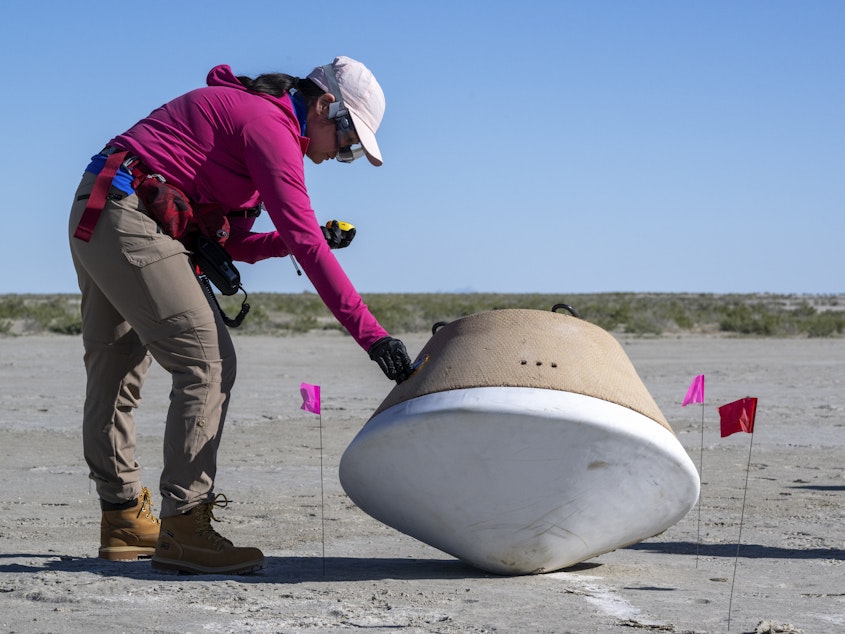Watch Live: NASA sends an asteroid sample back to Earth

After traveling billions of miles for seven years to touch an asteroid and bring a sample home, NASA's Osiris-REx mission has finally sent its precious contents hurtling toward Earth's atmosphere.
The spacecraft successfully released a sample canister holding about a cupful asteroid rock on as it passed within 63,000 miles of the planet's surface, officials announced Sunday morning.
In the canister should be roughly a coffee mug's worth of rock and other material collected from the asteroid Bennu, which at the time was more than 200 million miles away.
That single serving of space rock will mark the biggest haul of extraterrestrial material brought back by any nation on Earth since the Apollo astronauts carried pieces of the moon home, and the culmination of NASA's first attempt to bring samples of an asteroid back to Earth.
Asteroids represent the primordial building material from our early Solar System, untainted by planetary processes or by the presence of living things. As such, they could offer scientists a window into the kind of chemistry that could have led to life on our planet.
Sponsored
But for that to happen, that canister will now have to make the final leg of its journey alone. To do so, it will have to bear temperatures hotter than lava and slow down from a screaming 36 times the speed of sound before landing in Utah's Great Salt Lake Desert.
Officials say they expect the capsule to land in Utah shortly before 11 a.m. After retrieving it, team members will fly the canister to NASA's Johnson Space Center in Houston, Texas, which houses the repository for outer space samples like moon rocks. On Tuesday, if all goes well, they'll open the canister inside a special lab.
After that, the plan is to store part of the sample so that future generations of scientists can also study these samples with more advanced tools — just as scientists today are still studying moon rocks that Apollo astronauts brought back so many decades ago. [Copyright 2023 NPR]


